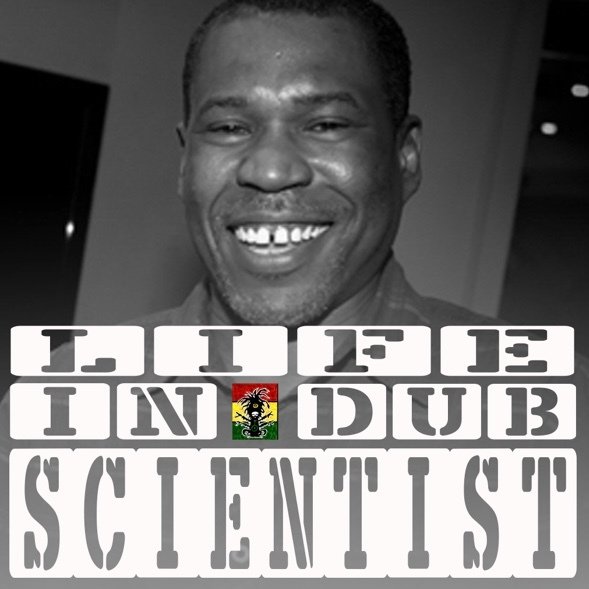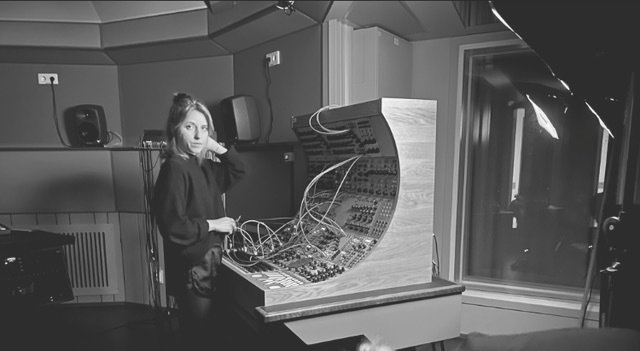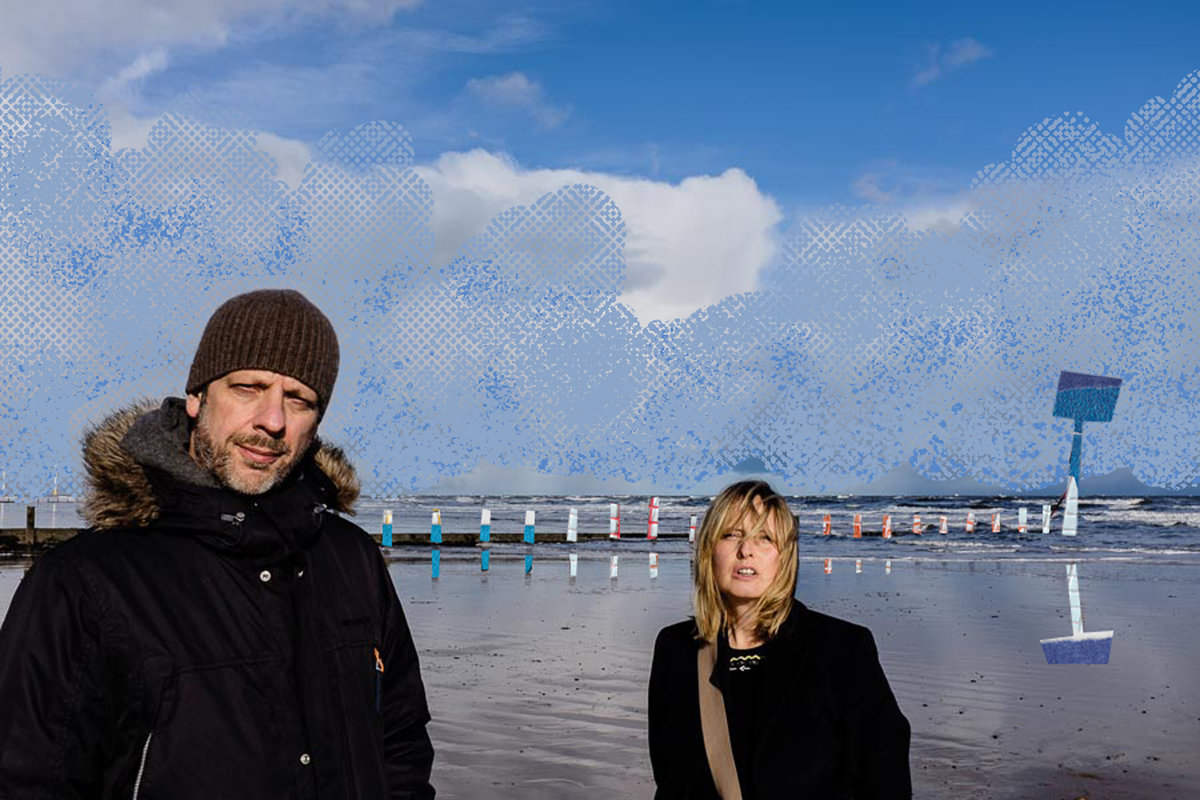
Ah, A Man Called Adam’s Sally Rodgers and Steve Jones — purveyors of such misty-eyed classics like ‘Estelle’ and ‘Easter Song, tunes that serve the Platonic ideal of a certain strain of warm and fuzzy Balearica. It’s the kind of music that has wistful nostalgia practically baked into it — but, as Sally claims, “We’re actually kind of anti-nostalgia.” There’s some proof of that declaration of last year’s ‘Farmarama,’ which was the duo’s first full-length in ages. That album retains the dreamy sheen of their best work of the ’80s and ’90s, but it’s far from a revision of past glories —it’s a modern record that feels very much of its now, with barely a ‘Barefoot in the Head’–esque throwback in the set.
Still, there’s nothing like a global pandemic to get one reminiscing about days gone by, and the pair’s latest release — the two-part ‘Love Forgotten: Oddities & Rarities’ compilation-plus — sees Sally and Steve taking a look back at some of their best unreleased work. The title is borrowed from a 2004 AMCA tune of the same name — a wondrous version appears on ‘Oddities & Rarities,’ taken from heartfelt organ-and-vocals performance of the song recorded at a wedding of friends at Le Corbusier’s La Tourette Monastery near Lyon, France. (Yes, that’s apparently the kind of world AMCA inhabits.)
The collection’s two halves — Part 1 is out already, while Part 2 will be available early February— will also be available in mixtape form for those who buy the comps, and listening to those from start to finish makes clear the breadth of music on tap. As you’d expect, there are nods to those hazy Ibizan days via unreleased mixes of some old faves, but the two sets also take in various strains of low-key house, global rhythms, experimental musings, pure ambience, jaunty pop, a few tunes which sidle up against folk-country, and various other sublime odds and ends. There’s also a companion piece, in the form of a fanzine — a rather deluxe, hand-pressed and handbound artisan fanzine, as it happens.
Even during this year of lockdown, it’s a bit surprising that the pair had time to put the massive 40-track, two-part compendium together. Both have recently received their doctorates: Sally’s PhD, earned a few years back at the University of St Andrews, considered the technology-led abstraction of lyric forms, while Steve’s, gained just this year, explored new performance practice and identity with mobile media. They’re now both senior lecturers, though needless to say much of that lecturing is being done via Zoom at the moment. Speaking of Zoom, that’s how Test Pressing reached Dr. Sally at her home near the coast; as it happened, Dr. Steve was there as well, visiting from his home in Paris. (Yes, before you ask — he quarantined.) They’re both bundled up against the late-autumn North East chill as they sit and chat, framing a teaching-award plaque and a reel-to-reel recorder in the background.
It’s not often that one gets a chance to speak with a pair of music-making PhDs. You both are busy teaching, right?
Steve: Yeah, I’m at Coventry University. Coventry is actually where I grew up, but I left there years ago. I’m working with some really interesting, talented young musicians. Not teaching them, really — more like guiding them, helping them to make music.’
Sally: I’m at Leeds Conservatoire, which used to be Leeds College of Music. Like Steve, it’s back in my hometown. I basically try to teach them how to make a living at music [laughs]. Teaching is quite hard work; you really have to be on. It’s kind of like being on stage. It’s intense, but it’s good to be around 18 and 19-year-olds.
Do your young charges have any idea who you are?
Sally: A little. They’ll follow us on Instagram. They always find this bit of film of us from 1991, where we’re performing at a gig at the Town & Country Club and I look like Shaun Ryder. The audience was completely tattered…it’s proper acid house. So that’s how they know us. But they don’t really know our music. We do get comments like, ‘Oh, my godmum loves you!’ or ‘Yeah, my dad used to go to the Haçienda!’ We’re more their parents’ age.
Besides teaching, how have you been holding up during the quarantine era?
Sally: Well, you know how it is — everyone asks, ‘How are you?’ and I always have to check myself a bit! But really, I think we’ve both been okay most of the lockdown. Time has been weird.
True – for instance, it feels like ‘Farmarama’ came out so recently, for instance, but it’s really been well over a year.
Sally: You can’t really map things out by significant events, can you? Like, normally you’ll be like, okay in August I did this, and in October I did that — but this year has been all a blur, really.
The release of ‘Oddities & Rarities’ might qualify as a significant event, though. How did the process of piecing that all together work?
Sally: Steve was in lockdown in Paris and I was in lockdown here, so we’d fire files back and forth. Like with ‘Love on My Mind’ [coming on Part 2], Steve would be like, ‘I’ve got the stems and I’ve just thrown this together.’ And it was cool, but he had used a vocoded sample straight off of the app Launchpad. I was like, ‘We can’t fucking have that on it. Anyone could use that!’ So then I did another version.
Steve: I’d done my version of that really quickly, like one night. That was kind of due to confinement early on in this — not having access to a studio, and not having access to Sally, it was a matter of using what was available.
Sally: You know ‘Love on My Mind’ is a Captain Beefheart cover right? Our neighbour who ran the garage next door was offered a huge musty old record collection — someone who’d once had a shop and they’d been rotting in a garage for years. Eddie, the neighbour, was older, not at all music-y but he thought ‘Oh, Sally and Steve like vinyl!’ so he bought it, all of it. And gave it to us. There was a lot of Beefheart in there — and Pentangle and Little Feet, and we just went down that road for a while.
Sally: Anyway, we’re used to working remotely even in normal times, because Steve lives in Paris. Pre-corona, we’d get to meet up and be in the same room something like ten weeks out of the year, and the rest of the time we’d just do something be on a WhatsApp video call, and I’d be working here and he’d be working there, almost like being in studio together. But lockdown has made it difficult to approach new work, at least for me.
I found it quite hard to approach the music during lockdown, because it has to come from your real creative core – it’s written in blood sometimes — and you have to be in the world for that to happen.
Sally: We did have some new material kicking around, but it needed more lyric or more musicianship or whatever. It needed developing. But I found it quite hard to approach music during lockdown, because it has to come from your creative core – it’s written in blood sometimes — and you have to be in the world for that to happen. You have to be in your emotions. You can do it if you’re feeling quite robust and confident, out there deejaying and everything — but lockdown knocked me sideways a bit. I didn’t really want to write lyrics; I didn’t really want to sing. I’ve written just two lyrics since lockdown — one’s about a pigeon in a garden, and the other one’s about the dog. The one is called ‘Fat Pigeons in the Rain.’ They’re not really for public consumption.
Steve: Just generally keeping it together in any way was difficult.
Sally: Yeah, just stopping myself from going completely mad was hard enough.
How long has ‘Oddities & Rarities’ been in the works?
Sally: By the time we had finished gigging at the end of the summer before, I had already started on the project, pulling out the old hard drives, while Steve was finishing his PhD. And then, by the time he did finish in February, all of a sudden it was lockdown, so working on ‘Oddities & Rarities’ became our main thing.
The original plan had actually been to finish up the ‘Farmarama’ remix series. I had gotten a quote for a remix off of the Mad Professor, I was speaking with some Korean dub kids, there was Dennis Bovell — we were looking to do a kind of reggae-ish release. We were thinking that might make a nice wind-up to the series…but then, suddenly, we didn’t want to spend a thousand pounds on a remix. For obvious reasons.
Steve: ‘Oddities & Rarities’ was almost a kind of coping strategy as well: ‘Oh, let’s get this old hard disc out and see what’s there.’ You were playing me things and I’d be, ‘What the hell is this?’
Sally: There’s a lot of stuff where we have no fucking idea when we had made it, or what it even is!
You have a fanzine of sorts coming out in conjunction with this, right?
Sally: Yeah, we actually have a lot of lovely merch coming through. We’ve been working with a guy named Craig Riddums on the visual stuff. For the zine, he’s interpreted our music and our visual archive — hundreds of pages from our notebooks, and our photographs and videos and all of that. He’s got a unique kind of vision, a really lovely artist.
Steve: It’s interesting to have someone interpret your life.
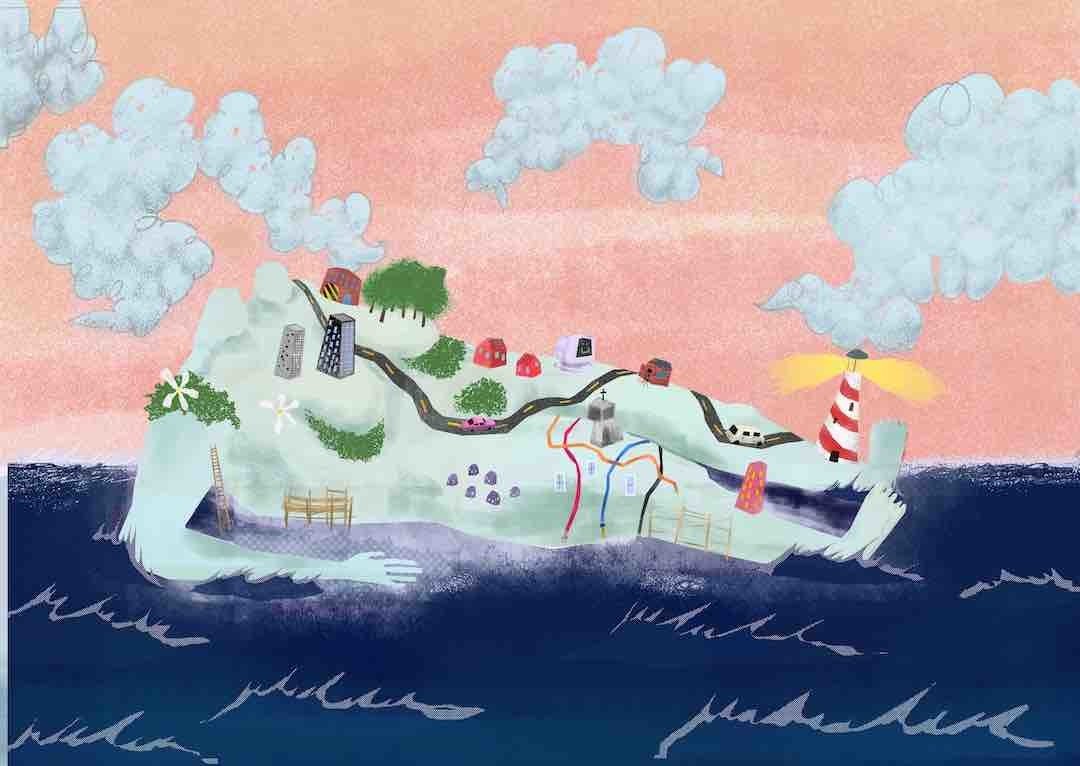
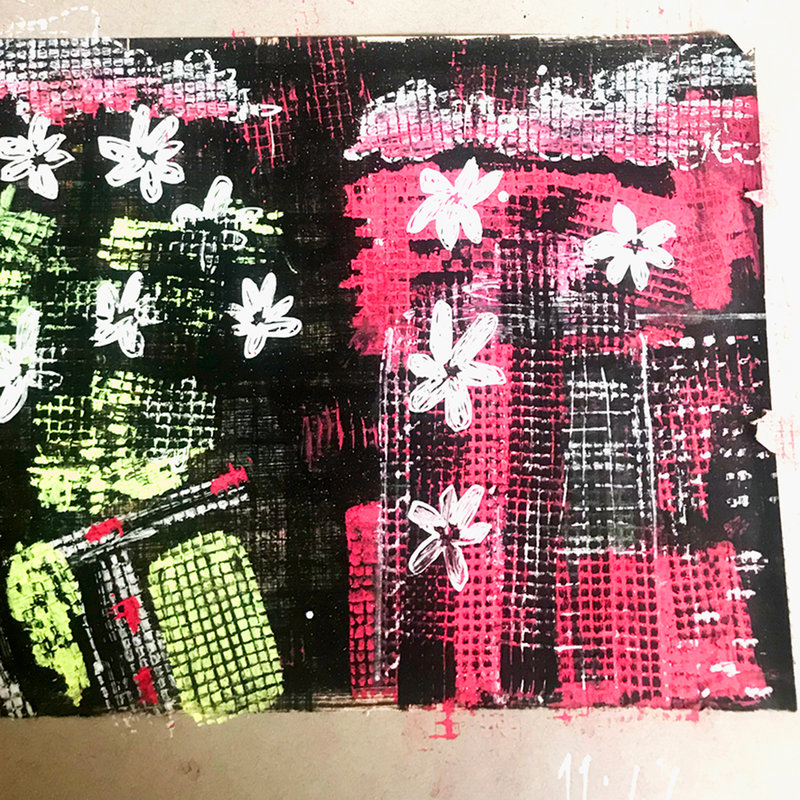
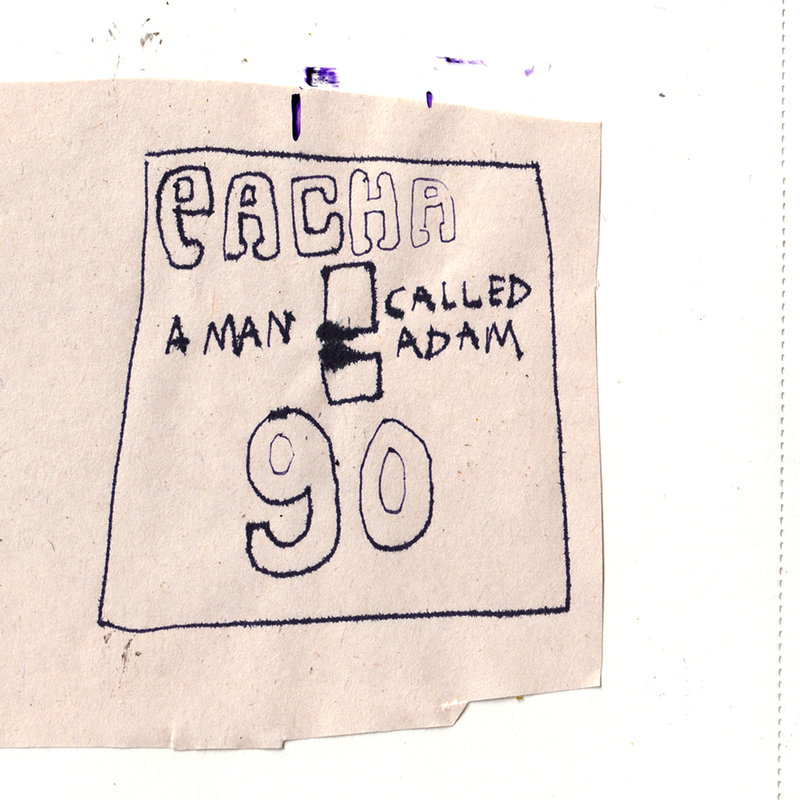
Sally, in the midst of putting ‘Oddities & Rarities’ together, there was also ‘This Unspoken Love (Questo Amore Segreto),’ that dreamy song that you did with Leo Mas and Fabrice. How did that come together?
Sally: We’d actually done that in the beginning of last year. I had managed to persuade them to bring me to Milan for that, though in reality I didn’t have to be there at all. I had a nice couple of days there with them. In a way, working with Leo and Fabrice reminded me of how we work — like, Leo must have sent me ten different versions of it over the months. I’d always say ‘ Yeah, that sounds great!’ Finally, the record arrived in the summer, and I thought, yeah, that’s nice. Now Leo wants me to do something with Rago & Farina, these serious Italo pioneers who are in their 60s now. They do, like, proper Euro synth-wave. I was like, ‘Yes!’
Getting back to ‘Oddities & Rarities’ comp, I’m guessing that over three decades you had accumulated quite a few bits and pieces. How did you narrow it down to 40 tracks?
Steve: We had actually already gotten rid of a lot of stuff when we had to break up the studio in Cornwall [a.k.a. the ‘Big Shed’] in 2012. A lot of things that were on old broken-down media — floppy discs, just things we did have the devices for any more, had already disappeared.
Sally: There was all of this stuff we did in that studio — projects that we didn’t share, or that were done as an obscure museum commission or something that nobody ever saw. For instance, for ‘Lynch No Birds,’ we did some experiments there with a great jazz guitarist called Martin Bowie. This is classic ‘Big Shed’ sonic mayhem: Steve miked up all the speakers to create an 11-second delay, and we all improvised around ourselves in this endless feedback loop. I think we recorded a couple of hours but this was one of the cutdowns we made, in an attempt to make it listenable — it’s pure sonic texture, improvised. Proper electroacoustic. There was another version with me reciting bits of Wallace Stevens’ Thirteen Ways of Looking at a Blackbird. This version was sort of ‘mind-melting’ and there were no blackbirds — hence the file was called ‘Lynch No Birds.’
A lot of it was just process, things we didn’t finish. So when we had to leave that house, we took a knife and a hammer to boxes of tapes and disks and hard disks. We draped two-inch tape in the trees all around the garden. We actually filmed ourselves doing all that, this weird little cathartic ceremony — it was the end of that, and now we’re going forward.
But how we culled things down further for ‘Oddities & Rarities was that we’d just listen to things and go, ‘Yeah, that’s kind of interesting.’ It could be that we had a good little song but it was a shit mix or shit arrangement or something, but there’d be a little germ in it that we thought might be good. Some of them we had to piece together and multitrack again, maybe put some new beats on them, mix them again.… Some of it is cut-down things we had done. The British Museum piece [‘Book of the Dead’] was about 12 minutes long, for instance — it was originally meant to be a gallery-enabling sound thing, meant to create an atmosphere while somebody looks at something amazing. It’s like, what’s the three minutes of this that’s worth listening to at home?
Steve: It was also choosing music that we had an emotional response to. Sometimes Sally would be playing me things and I’d be thinking, yeah, that’s okay. And sometimes she’d play me other things and it would just have me in bits.
Sally: We’d listen to some tracks and be like, boo hoo! I’m crying! This was particularly true early in the pandemic, when our emotional lives were heightened. If it had that kind of effect on both of us, we’d know that one was worth revisiting. Actually, most of it would bring us back to a particular place and a particular time — which is a bit strange for us, because we’re actually kind of anti-nostalgia.
Steve: The process of putting this together has given us a chance to reflect a bit.
Sally: Another thing that we considered is that we have these superfans, not a lot but a few, who know our catalogue better than we do. So this had to be something that they would be excited about. It couldn’t just be a repackaging of our material. We had to please our stans [laughs].
We never weren’t working together. We’ve actually made loads of albums — we just never released them.
Whatever the criteria, there certainly is a lot of beautiful music in there.
Sally: Yeah, we’re that band that everybody thinks only makes an album once every 14 years, but that’s not really true. When we came back with ‘Farmarama,’ people were like, ‘Oh, it’s great to see you together again!’ But we never weren’t working together. We’ve actually made loads of albums — we just never released them.
Why not?
Steve: Incompetence, distractions, all kinds of reasons
You do seem to have rather long gaps between your releases.
Sally: We did step away after the Southern Fried album [2004’s ‘All My Favourite...A Man Called Adam’]. It’s a lovely label and everybody involved in it is lovely, but for us that album was kind of a compromise.
Why is that?
Sally: We were supposed to have a new album out in the early noughties on Pagan, but Pagan went bust. The idea was that after that came out ,we were going to turn into more of a gigging band. We had nice musicians — some of the guys from the Divine Comedy were involved — and we were ready to do it. Everything was in place, everything was lovely. But after Pagan went bust, the album didn’t really fit anywhere else. Southern Fried was like, ‘Okay, we’ll take some of it, but make it sound like your Ibiza chill-out tracks.’ So we did — we did have a studio to pay for! But it wasn’t really what we were supposed to be doing.
That period, the early noughties, was a weird time in the industry anyway. We ended up just stepping back. We went to Cornwall, Steve studied sound design, we went more experimental, we did lots of songwriting.… I don’t know if we knew what to do exactly, so we did a bit of everything. It was very self-indulgent, but I guess we were very lucky to be able to be self-indulgent.
Is much of the material in ‘Oddities & Rarities’ from that period?
Sally:
Yeah, this album is largely about this period where nobody knew what we were doing, when we were doing loads of stuff but not letting people hear it.

You said that you’re anti-nostalgia - does it ever get frustrating for you that people still expect you to be the A Man Called Adam of the ’90s, making music like ‘Barefoot in the Head’ and ‘Easter Song’?
Steve: What did that guy say? ‘Why don’t you make songs like ‘Estelle’ anymore?
Sally: Yeah, that was a recent comment on our Facebook page! It used to bother us a little bit. There was a period where we didn’t have a record without a picture of a fucking sunset on it. We were like, enough already with the fucking sunsets! We don’t even go to Ibiza anymore! [laughs] But now, actually, we’re very, very happy that we have those songs. Not only do they help with the bills, they are actually quite meaningful to people. I mean, maybe somebody named their baby Estelle, or somebody played it at their grandmother’s funeral, or somebody asks us to sign their copy of ‘Barefoot in the Head’ because that was the song playing when they met. Who could be anything but grateful and proud and happy about that?
'Love Forgotten: Oddities & Rarities Part 1' (Other Records) is out via Bandcamp; Part 2 will be available early February.
Photography: Prisca Lobjoy; artwork: Craig Riddums

